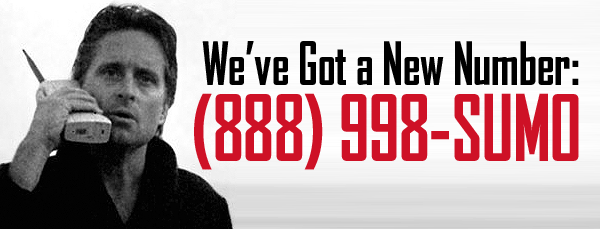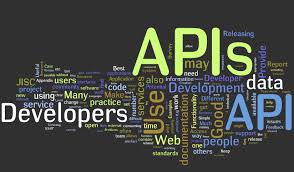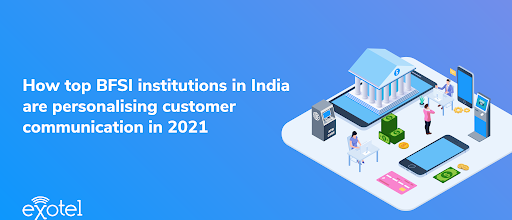With a lot of new entrants entering the cloud telephony space, it’s natural to be confused about which product to subscribe to. With one year of working with Exotel, I’ve noticed numerous people asking questions about how to go about choosing a particular product. Here are the top 5 things to keep in mind before making a decision :-
1) The Cost Permalink
You know this makes a big difference to you! To clear some air, Cloud Telephony is considerably more expensive than your normal mobile phone. These solutions are usually built on cutting-edge technology and operate in a slightly different way. Incoming calls are a cost to the service provider, Outgoing Calls are 2 calls. The advantage of going with Cloud Telephony is primarily saving up on the tons of money you would’ve shelled out to re-create such a system(using PRI lines/EPABX) yourself. A few questions to understand this would be :-
Q. How many calls do you get?
-> If you’re receiving way too less calls(less than 30 a day), you’re probably not going to derive a lot of value from the system as a pure calling solution.
-> If you’re receiving way too many calls(more than 2000 a day), you might be better off buying a PRI line/EPABX system of your own. It’ll work out cheaper and you can probably get a customized solution at your own premise.
There are obviously exceptions, but more than 80% of the people who fall under this category are ideally going to find a cloud telephony solution expensive. So think about how valuable your calls are to you and gauge the price of the solution accordingly.
Q. How much business(in money) does every call bring?
If your opportunity cost of the call is very less(Rs. 50), then it’s probably not worth the effort, if it’s anywhere greater, then you probably should look into getting a better phone system.
Lock-In -> Being a subscription based system, there are lock-ins involved, ranging from a month to almost a year. Do keep in mind how long your operations are going to last. Enquiring about flexibility with respect to phone numbers and other services will give you a good idea about what the lock-in brings for you – both good and bad.
2) The Number
One of the biggest value propositions of Cloud Telephony is having a SINGLE number for your business. The trick is to choose the right kind of number depending on your setup.
Location -> If you’re running a Movers and Packers business in Jaipur, it probably doesn’t make sense for you to buy a Delhi Landline number. If you’re alright with Mobile Numbers, that’ll open you up to a lot of possibilities. Also, Outgoing Calls are always made from a Server based Landline Number. If you are also making Outbound calls, you might want to consider how this number looks when people will be receiving your calls.
Nature -> Landline Numbers/Mobile Numbers/Toll Free Numbers. Typically, all Landline numbers are susceptible to downtime(due to physical outages like road digging etc.). If you’re heavy on Incoming Calls(e.g Restaurants) and cannot afford downtimes, you should probably look at numbers that are more reliable(Mobile,Toll Free). This will ensure better up-times.
Fancy Numbers -> Cab companies and the like depend a lot on number retentivity among their users. Fancy numbers such as 44224422 or 33553355 are now almost sold out and are very very difficult to find. You are also going to end up paying a fortune for such numbers.
Why do businesses buy Special Numbers?
Ownership -> The numbers are managed by your cloud telephony provider so the ownership of the nature(atleast to start with) is always with them. Landline Numbers cannot be transferred as they are parts of PRI lines(which are physical stacks of numbers) and they also belong to the infrastructure of the service provider. Transfer of Ownership process is very vaguely defined by most telephone operators and it’s not a good idea to rely on this process to keep your beloved numbers close to you. What I’d suggest is, buy a number of your own and use that as a parent Virtual number over cloud telephony. That way the number is always with you and on your name.
Guide to Mobile Number Portability and Ownership Transfer
How to use your existing phone number with cloud telephony.
3) Support
What kind of support engagement are you looking at? Are you more of a Do-It-For-Me(DIM) or Do-It-Yourself(DIY) type of guy? The more control you have on the system, the easier it will be for you to make changes. The more comfortable you are with the product, the lesser you rely on support for anything. It’s always a good idea to quickly watch a few videos and get yourself up to speed with how softwares work to understand what all the products are capable of. Depending on how flexible the system is, you might or might not have to rely on support for most of the things.
This is an almost dominant SaaS market so do not expect Services kind of support in terms of Feature requests, bug fixes, customizations etc. If you’re heavily dependent on APIs, you will need a tech team to help you seamlessly integrate with APIs.
4) SLAs
In terms of pure response times, cloud telephony is much much better than dealing with telecom operators directly. If you’ve ever bought a number for your business, you probably know how much of a pain it usually is. All telecom operators in India don’t have any SLAs. All of cloud telephony usually works on existing operators’ networks, So up-times are usually at the operators’ mercy. Call quality is comparable to normal network phone calls as the mode of transmission is the same. All SLA figures are actually empirical values computed by manually monitoring historic up-times of the previous months. Up-time is never 100%. If you’re looking at uptimes close to 100%, there are a few service providers which have developed solid fail-overs for numbers like Toll Free Numbers and Mobile Numbers. In terms of Support SLAs, it is a direct function of who the tech team comprises of and how well qualified they are.
5) APIs
Depending on how tech-savvy you are, you will take a look at these APIs at some stage in your business for certain. Be it for integration with your CRM, or for pooling common data, APIs are a terrific tool which is actually one of the coolest things about cloud telephony. All Data is now moving towards the cloud, with cloud telephony, data is now transferable, programmable and cross-linkable real time with infinite other cloud systems.
If you’re looking at doing the integration, make sure you have a good tech team. APIs might be extremely comprehensive depending on the nature of the product. Do take a look at the API documentation to get a hang of what all is possible with the APIs.
To sum it up, there are now numerous different products in the market, each one trying to solve a set of problems. The differences might lie in cost,features,use and feel, APIs but they are all different solutions. Cloud Telephony is a really powerful tool for Marketing,Analytics and Data integration. Figure out what fits your bill and move forward to the way of telephony awesomeness!!
If you’re looking to buy a cloud telephony solution, and have some more concerns, do feel free to drop me a note and I’ll be glad to help. 🙂
Quick reads :-
Top 10 ways to use Exotel APIs









 +65-6951-5460
+65-6951-5460 +91-8088919888
+91-8088919888 +1-(718) 354-8866
+1-(718) 354-8866 +62-215-098-4960
+62-215-098-4960 +60-3-2771-2799
+60-3-2771-2799 +61-2-8073-0559
+61-2-8073-0559
No Comments